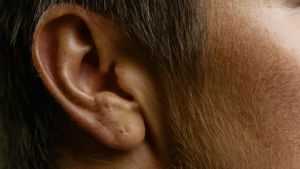JAKARTA - "Replaceping" sleep less on weekdays over weekends could reduce the risk of heart disease by nearly 20 percent according to a new study by writers from the State Main Laboratory for Infectious Diseases in China.
Information taken from Medical News Today, Monday, September 2, uses self-reported data from 90,000 people participating in the Biobank UK project. The researchers created four groups self-consisting of those who used to replace the most to least number of sleep. Lack of sleep is defined as sleep less than seven hours per night.
The average follow-up to the subject in this project is 14 years. By analyzing hospital records and death lists, study authors found that those who replace sleep at most have a 19 percent smaller chance of developing heart disease. Compared to those who have the least number of sleep.
Lack of sleep can affect a person's immune system, welfare, and ability to focus on daily tasks. The Centers for Disease Control and Prevention (CDC) recommends that adults sleep at least 7 hours every night.
Rigved Tadwalkar, MD, a board-certified cardiologist attenuation Saint John's Health Center at Santa Monica, CA, who was not involved in the study, told Medical News Today he was shocked by the findings.
I am surprised that changing sleep can be very helpful. This study shows the body's extraordinary capacity to restore energy and function, even after the previous sleep shortage period. The relationship between sleep and heart health is well known, the magnitude and timing of the benefits seen in this study are worth considering. This further underscores the importance of prioritizing sleep, even if that means making adjustments to your weekend schedule.
So, what about naps? Can naps help overcome sleep shortages? Can naps help people overcome sleep shortages?
Melanie Murphy Richter, MS, RDN, registered nutritionist and communications director for nutrition company Prolon said that napping can be a valuable time to increase energy but not a sustainable way to replace less sleep.
"The most body recovery processes, such as network repair, memory consolidation, and hormonal settings occur during unperturbed and consistent night sleep. So, even though napping can help in an emergency, consistently trying to get a solid night's sleep is something that will keep you excited."
Richter also added that nutrition can play an important role in building consistent sleep patterns, with hydration and herbs as well as adaptogens such as kamomil, valirian roots, markisa flowers, and ashwagandha considered a useful supplement.
SEE ALSO:
"In terms of sleep, nutrition plays an important role that is often overlooked. Melatonin supplements can help, especially with jet lags or shift work, but it's important to get the right time and dose, as too much can interfere with your sleep. Magnesium is another key player, who supports relaxation by calming down the nervous system," said Richter.
"However, don't forget the source of whole foods such as green leafy vegetables, nuts, and seeds, which offer sleeping support nutrition and fiber and antioxidants, making them more digestable and more sustainable in the long term."
The English, Chinese, Japanese, Arabic, and French versions are automatically generated by the AI. So there may still be inaccuracies in translating, please always see Indonesian as our main language. (system supported by DigitalSiber.id)


















